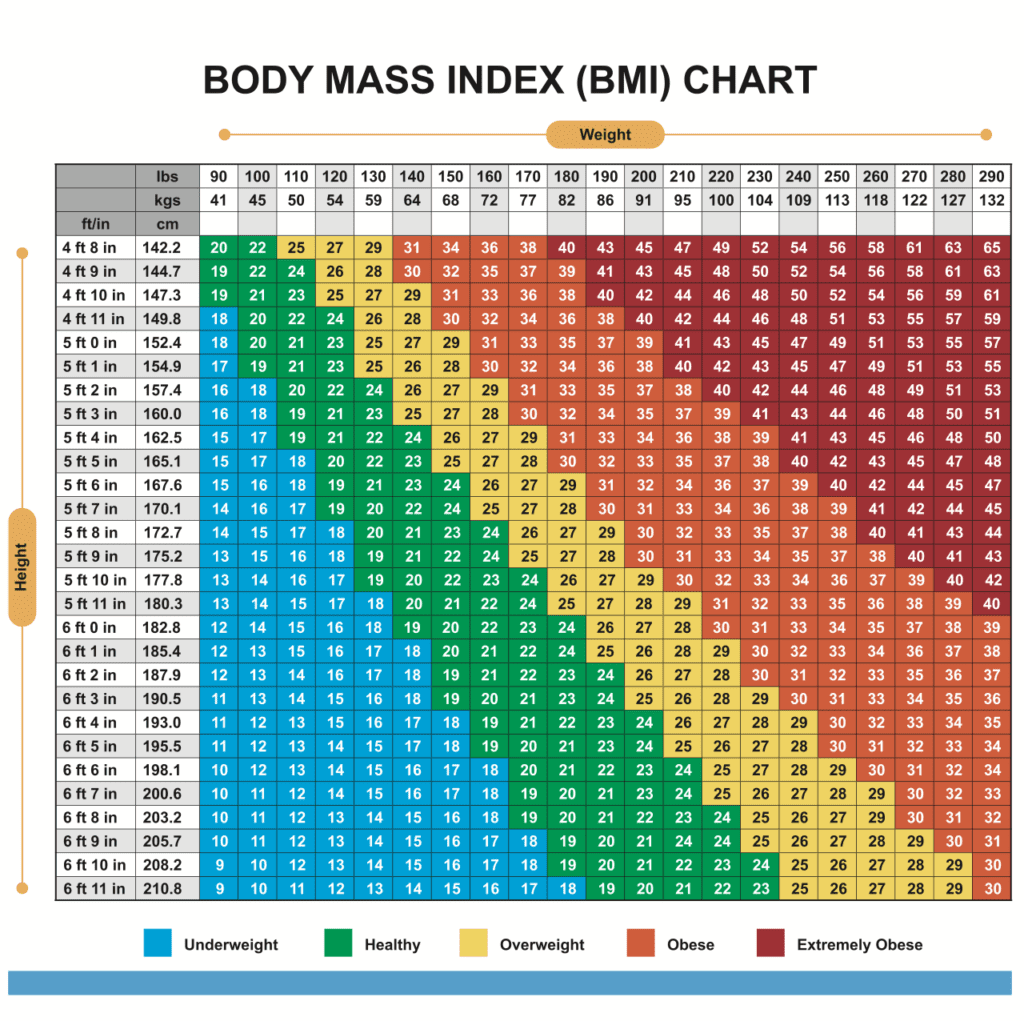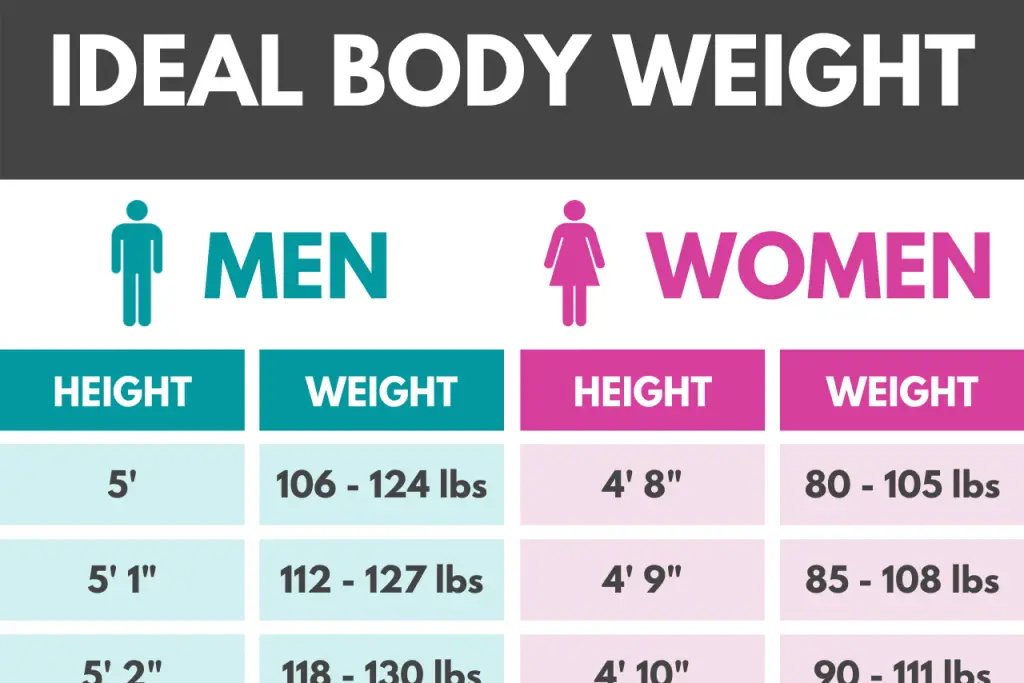When it comes to setting a target weight, it’s important to consider your overall health and what weight is best for your body. A good way to do this is to calculate your body mass index (BMI), which takes into account your height, age, and gender. Once you have calculated your BMI, you can use it to determine a healthy weight range for you. Your target weight should be within this range. It should also be realistic and achievable within a reasonable amount of time.
In addition to calculating your BMI, you should also consider your lifestyle when setting a target weight. Eating healthy, exercising regularly, and managing stress can all help you reach your target weight more easily. Remember, the most important thing is to take care of your health. Your target weight should not be so low that it jeopardises your health. Speak to your doctor if you are unsure about what weight is best for you. Finally, remember to be patient. Weight loss can take time and it’s important to be consistent with your goals and to take care of yourself along the way. With the right attitude and a healthy approach, you can reach your target weight in no time.
what should my goal weight be

When deciding on a goal weight, it is important to assess your current health, fitness level, and lifestyle habits. A good starting point is to consider the body mass index (BMI) range that is considered healthy for your age, gender and height. Your ideal target weight should also take into account factors such as your desired activity level and any health or medical conditions you may have. For example, if you’re an endurance athlete or have specific medical conditions, you may have a different target weight than a less active person. Your goal weight should be realistic and achievable, giving you enough time to gradually reach it.
Give yourself enough time to make lifestyle changes, such as eating healthily and exercising regularly, that will help you reach your target weight. It’s also important to set a timeline for achieving your goal weight and to keep track of your progress. Tracking your progress will help you to stay motivated and make any adjustments to your plan if necessary. Ultimately, your target weight should be something that makes you feel healthy and happy. Working towards a goal weight that is realistic and achievable for you will help you make lasting changes for a lifetime of health and wellbeing.
How do I determine my goal weight?
The first step is to assess your current body weight and evaluate your physical health. You should also consider any medical advice or guidance from your doctor. Once you have a better understanding of your current situation, you can use several methods to help determine your goal weight. It is important to remember that the goal should be realistic and achievable. You can use body mass index (BMI) as a general guideline for a healthy weight range.
You also have the option of setting goals based on body fat percentage. This can be helpful if you have an ideal weight, but your BMI does not line up with what is considered healthy. Other methods you can use include checking the mirror and clothes, and consulting a nutritionist or personal trainer. No matter what method you choose, it is important to set realistic goals, and to make sure you are setting goals that are healthy and achievable. It is also important to remember that healthy weight loss doesn’t happen overnight, and that it will take time and dedication to reach your goal weight. Finally, it is important to check in with yourself and your goals regularly to assess your progress. Evaluate any changes in your physical health, lifestyle, and habits. Make sure you are being honest with yourself and staying on track.
What is a good body weight goal?
What is my target weight? Having a healthy body weight is important for physical and mental wellbeing. A good body weight goal is one that is achievable, realistic, and safe. It is also important to consult a professional, such as a health care provider or nutritionist, to determine the right weight for your height, body type, and lifestyle. To achieve a healthy body weight, focus on making lifestyle changes that promote a balanced diet and regular physical activity. Eating a balanced diet of fruits, vegetables, whole grains, lean proteins, and healthy fats can help you to reach your goals.
Regular physical activity, such as walking, running, or biking, is also important for maintaining a healthy weight. Weight loss should be a slow and steady process, focusing on long-term changes rather than quick fixes. A goal of losing about 1 pound per week is considered safe and effective. This allows your body to adjust to the changes gradually, improving your chances of succeeding. By setting realistic goals and making lifestyle changes, you can achieve your target weight while maintaining your overall health and wellbeing. Remember to consult with a healthcare provider to get started on the right track, and take it one step at a time.
What is a healthy belly size?
A healthy belly size depends on an individual’s weight and height. To determine what your target weight should be, you need to calculate your body mass index (BMI). A BMI of 18.5 to 24.9 is considered healthy and is recommended to maintain a healthy belly size. In order to achieve a healthy belly size, you should have a calorie intake that is balanced with physical activity. Eating a nutritious diet, rich in whole grains, fruits, vegetables and lean proteins, can help you stay within your target weight.
Regular exercise is also essential to maintain a healthy weight and belly size. It’s important to remember that everyone’s body type is different and may require different amounts of exercise and eating habits. You should be patient and consistent with your healthy lifestyle goals in order to reach your target weight. For those who are overweight, it is important to make gradual changes in order to maintain a healthy belly size. Making small changes to your eating habits and exercising regularly can help you reach your target weight and achieve a healthy belly size. Finally, it’s important to talk to your doctor about your health goals and any potential health risks associated with reaching your target weight. They can provide guidance and support to ensure that you are taking the right steps to maintain a healthy belly size.
How do you set goal weight?
It can help you stay motivated and on track to reach your health goals. When setting a goal weight, it is important to consider your current weight and health profile. Your goal weight should be realistic and achievable based on your lifestyle. It should also be something that you can maintain for the long term. If you are unsure of where to start, consult with a physician or dietitian to determine the best target weight for you.
They can take into account your age, gender, height, and activity level to help determine the right goal weight for you. Once your target weight is established, it is important to break it down into smaller, achievable goals. For example, if your goal weight is 120 pounds, set one-month goals to lose five to ten pounds. This will help you stay on track and not become overwhelmed by the overall goal. Finally, make sure to track your progress and celebrate your successes! Taking pictures of your progress, writing down how you are feeling, and patting yourself on the back for all your hard work will help keep you motivated and focused on your goal.
What should I do and eat to gain weight?
If your goal is to gain weight, you should focus on eating a balanced diet that is high in calories and protein. Eating nutrient-dense whole foods, such as meat, dairy, eggs, legumes, nuts, and whole grains, can help you get the right kind of nutrition and calories you need to meet your target weight. In addition to eating a healthy, high-calorie diet, you should also make sure to exercise regularly. Weightlifting and resistance training can help you build muscle and increase your weight. Incorporating regular cardiovascular exercise into your routine can also help you burn calories, which will boost your metabolism and help you gain weight.
You should also make sure to get adequate rest and sleep. Getting enough sleep can help with muscle recovery and help you stay energized throughout the day. Finally, be sure to stay hydrated by drinking plenty of water. In summary, if you want to gain weight, aiming for a balanced diet that is high in calories and protein is key. Additionally, exercising regularly and getting enough rest and sleep are important for achieving your target weight. Lastly, making sure to stay hydrated will help you reach your goals.
What is a good step goal to lose weight?
To make sure that you reach your target weight in a safe and healthy way, it is important to set a realistic step goal for yourself. A good step goal for losing weight is to aim for 10,000 steps a day. This is a good number as it is achievable but challenging, and has been shown to be an effective way to help people lose weight. In order to reach your target weight, it is important to ensure that you are also eating a balanced diet. The 10,000 steps a day should be combined with healthy eating in order to achieve the best results.
It is also important to make sure that you are getting enough rest and relaxation. Making sure that you get enough sleep each night and dedicate some time to stress relief activities is important for maintaining a healthy lifestyle. Finally, make sure to stay motivated throughout your journey. It can be difficult to stay on track, but setting short-term goals and celebrating your successes can help to keep you motivated. With a good step goal and a healthy lifestyle, you can reach your target weight.







